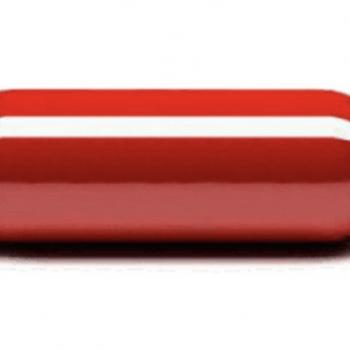
Last week I created a little dust up with this provocative post.
I knew what would follow, when you question the universal efficacy of something many people hold as sacred you should expect a strong reaction.
(Nevertheless, some of the commenters revealed that they are not careful readers.)
The post was critical of the tendency we have to expect science to answer questions it is ill-equipped to answer, as for example, when people ask Stephen Hawking for his take on Brexit. I suppose it is interesting to know his opinion, but really, why should his opinion of the European Union carry anymore weight than someone else’s?
This is why it is good to recall that what we call science today got its start by narrowing the focus of inquiry.
Some have said it was a rebellion against Aristotelean science. (The rebellion has proven so successful most people today wouldn’t even consider Aristotle a scientist.) Ironically, Aristotle’s science was itself a rebellion in its own way against Platonic science. (Talk about odd, for most people now “Platonic science” seems like an oxymoron.)
The general trend is easy to follow though, we’ve moved away from the ethereal to the material. Looking at Aristotle can help here because he’s a transitional figure.
The Four Causes
Aristotle identified four reasons why something is what it is. They are: its material cause (what it is made of), its efficient cause (how it comes to be what it is), its formal cause (the internal order that reflects a nonmaterial principle) and last of all, its final cause (its purpose).
Platonic science was preoccupied exclusively with the last two things: formal and final considerations. These are metaphysical concerns because they traffic in meaning. This is the study of wholes. It is rational, but it was also imaginative. And the term for this study is contemplation.
Aristotle encouraged the study of material and efficient causation, things that Platonists considered unworthy of a liberally educated man. That’s because the outcomes of such study served the servile arts, those practical matters that minister to the body. Still, Aristotle, for all his “this worldliness” still prioritized formal and final causes. It took people like Francis Bacon to put contemplation on the shelf.
Science as we know it today is entirely given over to the study of material and efficient causation. Early on this was believed to be a useful technique for narrowing your focus. When you left the laboratory though you were still expected to think about larger questions. But today those larger questions have been relegated to the small realm of subjectivity. Most people believe the universe is a purposeless mechanism, and purposes, when they exist at all, only proceed from the subject to the object. People don’t conform to the nature of things, they make nature conform to their wills.
Notice I uses the plural there, because if there is no intrinsic purpose to anything, then we’re left with a battle of human wills when it comes to our lives in the world. It is either that, or isolating ourselves, making little bubbles of meaning to live in all by our lonesomes.
I’m grateful for modern science
The practice of science is hard work and it calls for a number of virtues, among them honesty and humility. Scientists are dealing with realities that we must conform our minds to.
Wonderful discoveries have followed its progress. I favor the hard sciences, the so-called soft sciences just seem to muddied to me by human interest to take very seriously. Their concerns more properly belong to the realms of ethics and religion, studies where human interests ideally are owned up to and dealt with directly without the pretense that they are not present.
I especially admire physics, and anything to do with cosmology. In my household when I’m asked what I’d like for my birthday or for Christmas my standard response is, “Faster than light space travel.”
The revenge of metaphysics
Nevertheless there are things the scientists will never be able to tell us. For instance, why shouldn’t we just squander the earth’s resources and just live for the moment? I think we all know it would be wrong to do that (even though we do it anyway). Still, science can only provide quotidian answers to ethical questions. Ethics, as you may recall from my little survey of Aristotle’s causes, doesn’t really belong to the study of material and efficient causation.
Yes, I know, people claim it does anyway. We call those people positivists. But when you reduce ethics to necessity in this way you’re no longer talking about ethics.
But even positivists don’t live as positivists should. That gruel is too thin to support life. And metaphysics is even making something of a come back in the academy. But that shouldn’t surprise anyone, because the fact that no one wants to live in a meaningless world may be the best evidence that we do live in a meaningful world after all.












